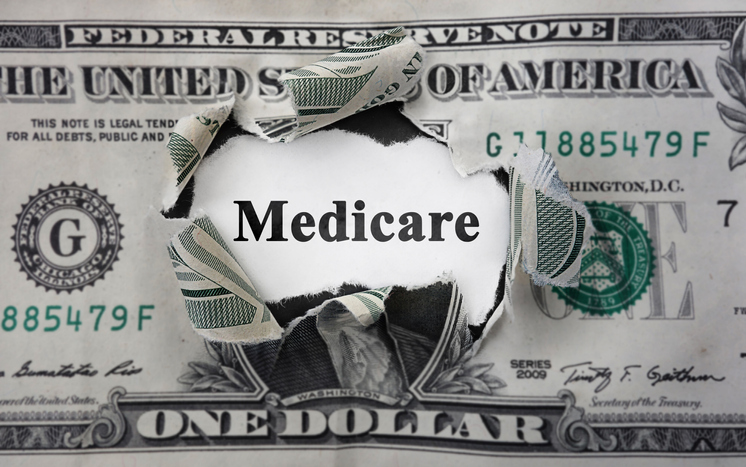‘Merits’ of the Inflation Reduction Act for seniors unmasked, with fewer innovative drugs and $280 billion siphoned from Medicare. (Commentary)
Negotiations have nothing to do with the program spelled out in the IRA. The truth is, the drug “negotiation” program is simply a price-fixing racket created by Democrats in Congress to empower the Department of Health and Human Services (HHS) to dictate drug prices, independent of any free market considerations.
What that means for drug manufacturers is that they won’t be able to recoup the dizzying research and development costs. Typically, more than $2.5 billion is invested to develop each drug. And even after such investments, many drugs never make it all the way to pharmacy shelves.
What it means for seniors is fewer new cures and treatments. Drugmaker AstraZeneca has already stated that it would pare back development of cancer-fighting medications, specifically because the economics of the IRA would not support it. Eli Lilly likewise pointed to the IRA to explain why it was discontinuing a $40 million blood cancer drug. Alnylam cited the need “to evaluate the impact of the Inflation Reduction Act” for its decision to halt development of a rare eye disease treatment.
Reduced R&D activity may result in as many as 342 fewer new drug approvals through 2037, a University of Chicago analysis of similar legislation found. The study projected a deadly harvest would result, measured as a loss of 331.5 million life years in the United States.
The reality is that Biden’s IRA’s drug program will hurt, not help America’s seniors.
Adding insult to injury, the law plunders Medicare, siphoning $280 billion in estimated program savings to subsidize EVs – as much as $7,500 per vehicle for Americans in top-income brackets. This is outrageous, especially considering that the latest Medicare Trustees report projects the program to become insolvent in 2031. Such a crisis would no doubt result in severe benefits cuts or tax hikes, neither of which is good for seniors.
Though the IRA promised to lower drug prices seniors are already feeling the pain of higher prices for drug coverage. Medicare Part D premiums rose dramatically between 2023 and 2024, jumping more than 21%, far above the rate of inflation. Part D premiums are expected to jump again next year—before the price fixing scheme even goes into effect in 2026.
Recent research indicates that seniors may actually wind up with higher out-pocket costs for their medicine as a result of the IRA. Because of changes in the way the government will calculate how much money Medicare recipients have paid toward their annual cap, one risk management firm estimated that patients who use drugs that are part of the new Medicare Drug Price Negotiation program will pay 12% more in 2026 when the program kicks in.
At the same time, seniors are losing choices for their Part D drug coverage plans. This year alone the number of stand-alone Part D plans fell by 11% . Fewer plans mean less competition, which is bad for seniors.
Seniors will also face limited options when it comes to the drugs they take. Industry experts foresee that as insurers are forced to shoulder more and more of the financial burden due to the cap on out-of-pocket expenses imposed by the IRA, they’ll begin limiting drug options for their customers. Simply put, while their doctor may recommend drug “A,” their insurance will increasingly only pay for drug “B.”
With any luck, one or more of the pending legal challenges to the IRA drug pricing scam will reverse Congress’ foolishness. Rather than punishing seniors, dismantling America’s pharmaceutical industry, and skimming from Medicare, to fund partisan initiatives, Congress should focus on lowering drug prices through promoting healthy competition between drugmakers, and honest negotiations with government purchasers.
Ken Blackwell, a former mayor of Cincinnati, also served as deputy undersecretary at the U.S. Department of Housing and Urban Development.
Originally published by RealClearPolicy. Republished with permission.
For more Health Care News.
For more Budget & Tax News.
